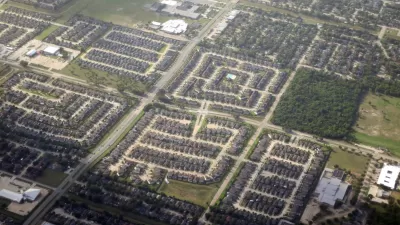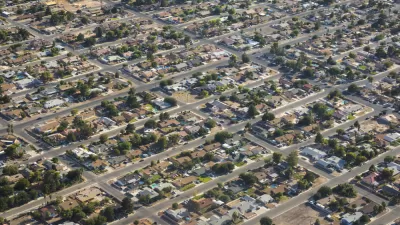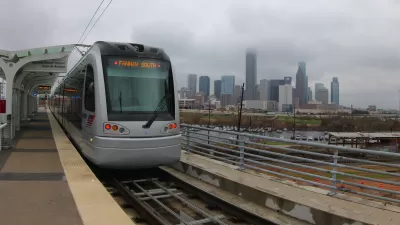In an interview, architect Renzo Piano says European suburbs are not desolate. He argues they shouldn't be treated as such in the quest for cohesive cities.

Sylvia Poggioli shares a radio interview with architect Renzo Piano, who aims to reinvigorate city outskirts in his native Italy. "Whatever he calls them, Piano believes 'the suburbs are the place where energy is in the city — in the good, in the bad. When you say Milan or Rome or Paris or London, you mean that 10 percent of people [living] in the real center. But the 90 percent live in the outskirts.'"
It is often observed that European cities resemble American cities in reverse: rich inner city and poorer suburbs. But Piano's quest for social cohesion applies on both sides of the Atlantic. "Either, Piano says, 'We are able to transform the peripheries of the big cities [into a] real urban place, where people stay together, where tolerance is found, where people share value in the same place[s] — library, concert hall, museum, whatever; or the city will be broken in two pieces: the rich part in the center — that will be about conservation — and the poor part in the outskirts — that is about protest. It's inevitable.'"
Piano echoes fellow urbanists in his criticism of sprawl. "And it's crucial, Piano says, that Italians not build any more peripheries, because stretching services and public transportation further outward is unsustainable. He says peripheries must be developed not by expansion, but by implosion; by transforming what's already available — what's known as brownfields."
FULL STORY: Architect Renzo Piano: The Future Of Europe's Cities Is In The Suburbs

Planetizen Federal Action Tracker
A weekly monitor of how Trump’s orders and actions are impacting planners and planning in America.

Chicago’s Ghost Rails
Just beneath the surface of the modern city lie the remnants of its expansive early 20th-century streetcar system.

San Antonio and Austin are Fusing Into one Massive Megaregion
The region spanning the two central Texas cities is growing fast, posing challenges for local infrastructure and water supplies.

Since Zion's Shuttles Went Electric “The Smog is Gone”
Visitors to Zion National Park can enjoy the canyon via the nation’s first fully electric park shuttle system.

Trump Distributing DOT Safety Funds at 1/10 Rate of Biden
Funds for Safe Streets and other transportation safety and equity programs are being held up by administrative reviews and conflicts with the Trump administration’s priorities.

German Cities Subsidize Taxis for Women Amid Wave of Violence
Free or low-cost taxi rides can help women navigate cities more safely, but critics say the programs don't address the root causes of violence against women.
Urban Design for Planners 1: Software Tools
This six-course series explores essential urban design concepts using open source software and equips planners with the tools they need to participate fully in the urban design process.
Planning for Universal Design
Learn the tools for implementing Universal Design in planning regulations.
planning NEXT
Appalachian Highlands Housing Partners
Mpact (founded as Rail~Volution)
City of Camden Redevelopment Agency
City of Astoria
City of Portland
City of Laramie





























